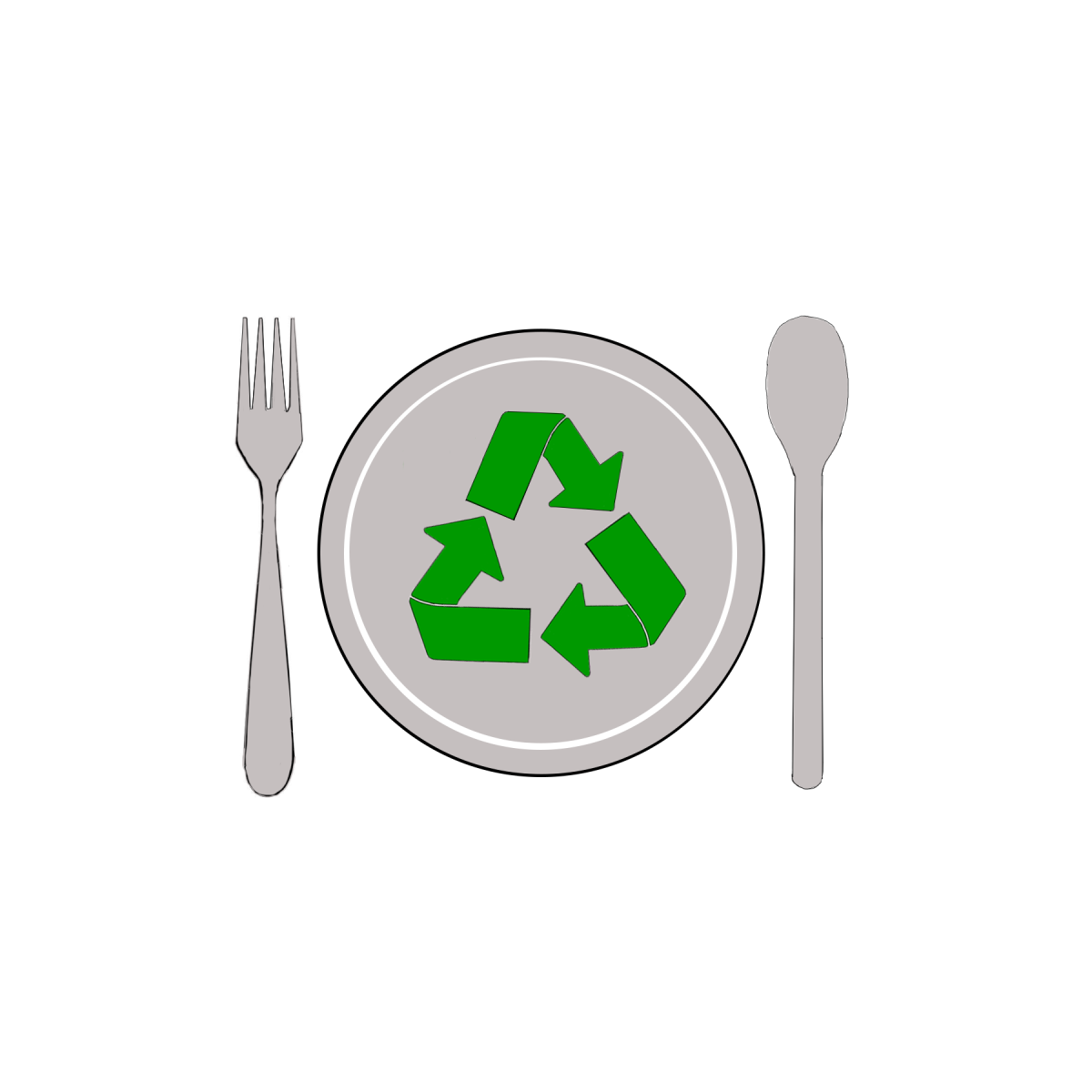
_Abigail Ruhman is a freshman journalism major at MU. She is an opinion columnist who writes about student life, politics and social issues for The Maneater._
The first thing I remember when I was walking into my residence hall was a small sign on the concrete pillar outside the door. It requested that residents only use the automatic functions on the door unless necessary by urging students to “Think Green!” As an incoming freshman and someone who cares about the environment, that sign showed me that my college cared about the environment just as much as I do.
MU has made strides to be more environmentally conscious, but part of the campus is behind on the crusade. Campus Dining Services usually only uses reusable dishes when the university is expecting a large quantity of prospective students or family. With the near-constant use of plastic plates, bowls and utensils, it’s shocking that one of CDS’ pride points is sustainability.
The CDS website explains under the sustainability category, “Our commitment is to make right decisions and take right actions to continually improve each step we affect in this cycle.” By continuing to use plastic ware, CDS is ignoring a large portion of the cycle they effect. Plastic doesn’t just hurt the environment; it hurts the health of people all over the world.
From production to disposal, “plastic threatens human health on a global scale,” according to a report from released by the Center of International Environmental Law in collaboration from six other environmental organizations.
The report walks through the life cycle of plastic and each step provides an additional risk for consumers. The chemicals needed to produce plastic have been linked to many health issues including cancer, neurotoxicity, reproductive and developmental toxicity, impairment of the immune system and many more. The only way to access over 170 of the chemicals necessary is by fracking, which in and of itself is an environmental risk, according to National Geographic.
The use of plastic products opens the door for consumers to inhale or ingest large quantities of both microplastic particles and hundreds of toxic substances, according to the same CIEL report.
As the plastic begins to degrade, plastic additives have the opportunity to transfer to water, soil or body tissue. This happens easily due to the lack of attachment between polymer matrix and the additives.
Once the consumer is done with the plastic, the next danger accompanies the disposal of the plastic. Due to a lack of technology surrounding waste management, all the current forms of disposal release toxic metals such as lead and mercury, acid gases and other toxic substances to the air, water and soils.
These parts of the plastic life cycle are linked to the consumption and production of plastic. Due to CDS’ use of plastic, these environmental impacts are something that people on this campus are participating in everyday.
The thing is, CDS has taken environmentally friendly decisions in the past. In 2011, there was a student-driven movement to make the four all-you-care-to-eat locations are trayless to cut down on energy and water used when washing the trays, according to Missouri Students Association’s initiatives page. In addition, CDS paired with Bradford Research Center to create a composting program for the food waste on campus, according to a video released on CDS’ youtube channel.
While the trayless movement saw success, the composting initiative has seen a decrease in participation, according to the Columbia Missourian. CDS’ published content states that it composts 90 million tons of food and waste annually. Eric Cartwright, executive chef of Campus Dining Services, told the Missourian that he wasn’t sure how much the decrease is, but estimates a 20 percent drop in collected materials.
The use of plastic materials has part of the reason this drop has occurred. With the 30 million individual pieces of cutlery and containers bought for CDS every year, the waste is thrown away with the plastic.
Rollins and Plaza 900 don’t use reusable dishes often, meaning that they have students throw their waste in the big red trash cans. From there, the entire bag is thrown away, meaning that two of the biggest on-campus dining locations are no longer participation in the composting program.
CDS claims it takes steps to become more sustainable, but it’s taking steps back at the same time. Plastic has environmental and health related consequences that CDS may be ignoring for the sake of convenience. Between a decrease in composting and an increase in plastic, CDS is failing the students it’s meant to serve by lying about how sustainable the dining halls actually are, while still echoing the phrase, “Think green!”